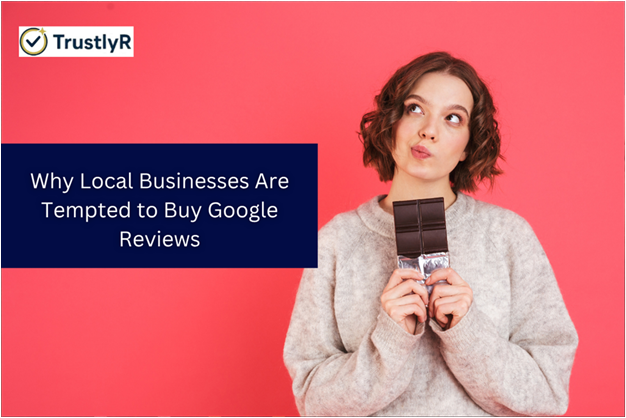Why Local Businesses Are Tempted to Buy Google Reviews

The digital landscape evolves faster than ever, and reputation management has become a cornerstone of modern marketing. Over the last ten years, numerous businesses have succumbed to the temptation of purchasing Google reviews as a quick route to credibility and visibility. But as Google’s algorithms become more advanced and consumers more discerning, experts are now asking will this strategy still work in 2030? The answer lies in understanding how artificial intelligence, policy enforcement, and consumer behaviour will shape the future of online trust.
The Current State of Buying Google Reviews
Today, many small businesses view online reviews as crucial for their success. The decision to buy Google reviews for my business often stems from the intense competition in local markets. A higher rating can lead to better visibility in Google Maps, increased clicks, and more customer enquiries.
However, this approach already faces mounting challenges. Google’s review algorithms are continuously updated to identify and remove suspicious feedback. With advancements in sentiment analysis and user behaviour tracking, it’s becoming increasingly difficult for fake or paid reviews to go undetected.
The Rise of AI and Automated Detection Systems
Artificial intelligence will play a massive role in determining whether buying Google reviews will still work in 2030. Google already uses machine learning to identify unnatural review patterns, including repetitive language, review velocity, and geographic inconsistencies.
By 2030, these systems will be exponentially more sophisticated. Algorithms will not only detect fake reviews faster but also cross-reference user data, purchase histories, and online behaviour. This means businesses that buy reviews may find themselves penalised almost instantly, with their credibility suffering long-term damage.
How Consumer Behaviour Is Shifting
Today’s consumers are more informed and sceptical than ever. Younger generations especially Millennials and Gen Z rely heavily on social proof but are quick to spot inauthentic behaviour. They can often identify fake reviews based on writing style, timing, or lack of detail.
By 2030, as digital literacy continues to grow, the tolerance for manipulated feedback will be close to zero. Brands that rely on buying Google reviews online risk alienating their audience, as customers increasingly value transparency, authenticity, and real user experiences.
The Ethical and Legal Landscape of 2030
The future of review management won’t just depend on technology it will also hinge on regulation. Governments and online platforms are tightening their policies on deceptive marketing practices. In many regions, buying or selling fake reviews already violates consumer protection laws.
These regulations are likely to become stricter and more globally enforced by 2030. Platforms like Google may collaborate directly with regulatory agencies to combat fraudulent reviews. Businesses caught participating in paid review schemes could face penalties that go beyond delisting including fines and public brand damage.
The Role of Platforms Like Trustlyr
Companies like Trustlyr are redefining how businesses build online credibility. Instead of resorting to paid or fake feedback, Trustlyr helps brands generate authentic, verified reviews from real customers.
This model aligns perfectly with the direction online marketing is heading. By 2030, review management tools will prioritise transparency, data validation, and user trust. Businesses leveraging ethical platforms like Trustlyr will not only protect themselves from penalties but also strengthen their SEO performance organically.
Google’s Push for Authentic User Experience
Google’s mission has always been to provide users with the most accurate and helpful information. Reviews are a key part of that ecosystem, influencing purchasing decisions and shaping public perception.
As Google’s algorithms evolve, they will continue to emphasise authenticity and user intent. The future of SEO will depend on real engagement user-generated content, verified reviews, and genuine feedback loops. In that context, buying Google reviews will become not just ineffective but counterproductive.
Short-Term Gains vs. Long-Term Consequences
The temptation to buy Google reviews for my business often comes from the promise of quick results more stars, higher rankings, and increased visibility. But those gains are short-lived. Once detected, fake reviews can be deleted overnight, wiping out any perceived advantage.
The long-term damage, however, can be severe. Your SEO progress can stall for months or even years if you lose credibility with customers or receive a flag from Google. In the competitive digital landscape of 2030, rebuilding trust will be far more difficult than earning it authentically in the first place.
Alternatives to Buying Reviews
Instead of paying for reviews, businesses should focus on building systems that encourage genuine customer feedback. You can naturally increase your rating by providing excellent service, following up with satisfied clients, and using automated review requests.
Platforms like Trustlyr make this process seamless, helping businesses manage and showcase real reviews while complying with Google’s evolving standards. By 2030, these methods will be the foundation of every successful digital reputation strategy: authentic, data-driven, and scalable.
Predictions: The Future of Review Marketing
Looking ahead, the marketing landscape of 2030 will likely feature a blend of automation, transparency, and AI-powered validation. Businesses will no longer compete on the quantity of reviews but on their quality and authenticity.
Tools like Trustlyr will become industry standards, ensuring each review comes from a verified source. In this environment, buying Google reviews will lose its appeal entirely replaced by smart systems that reward genuine customer engagement and loyalty.
Conclusion
By 2030, the digital world will have little tolerance for deception. Between advanced AI detection, strict regulations, and heightened consumer awareness, buying Google reviews will likely become an obsolete and risky tactic.
Instead, businesses will thrive by earning real trust through transparent, authentic engagement. Investing in ethical reputation platforms like Trustlyr and prioritising honest customer feedback will be the defining strategy for sustainable success in the decade ahead.




